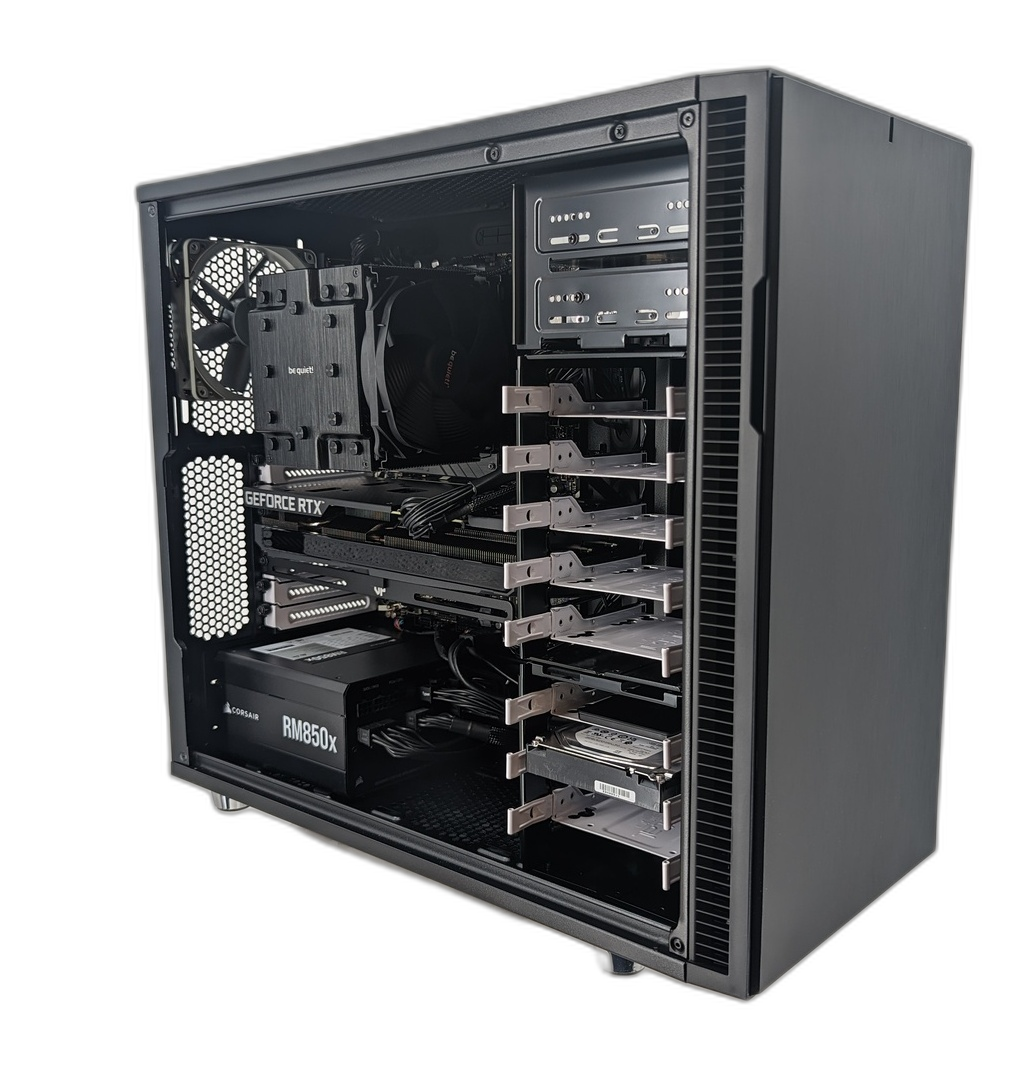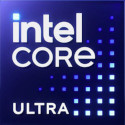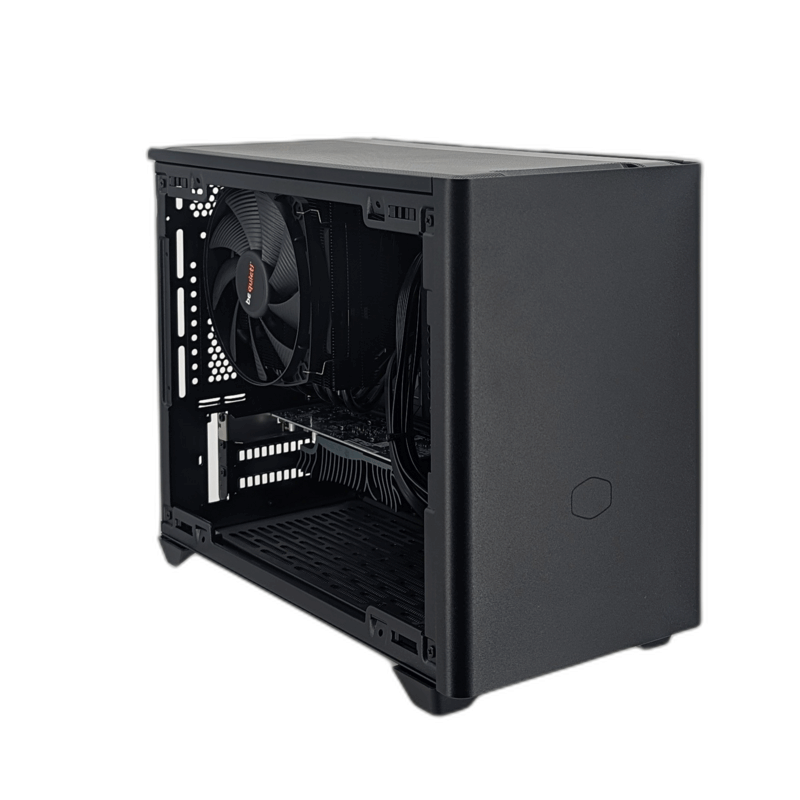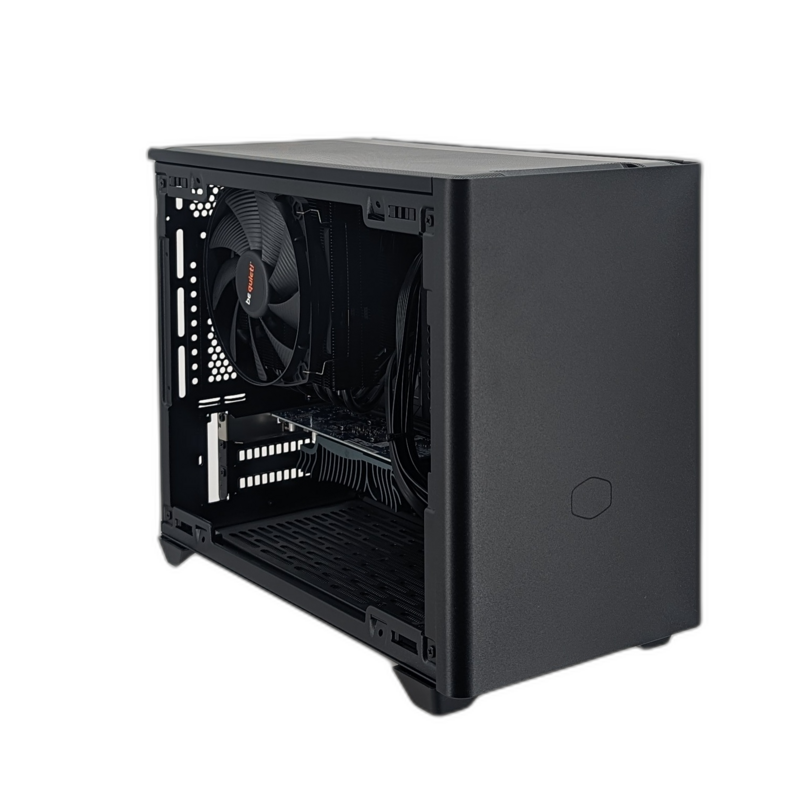Warning: Technology changes very quickly so it is always recommended that you look at the date when the article was last updated. If you have any questions feel free to contact us.
Article Date: 04-24-2014
How To Build A Quiet PC
There are a thousand and one articles out there that give you methods for quieting your PC. Some of those methods are helpful and some are inadequate. These simple steps are what we believe to be the top priorities to keep in mind when building a Quiet PC or quieting your existing computer.
1 | Concentrate on the THREE BIG SOURCES of PC noise
Quiet Power Supply | Quiet CPU Fan | Quiet Case Fan
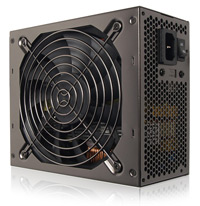
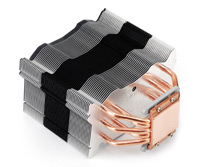
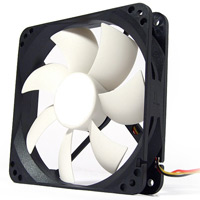
THEN, once the big noises have been silenced, you can address the smaller noises in your PC.
Smaller noise sources in your PC
- hard disk drives
- video card fans
- loud dvd/blu-ray drives
- small case vibrations
If these noises are a source of frustration to you, then you can address them or you can consider case insulating material to further dampen the noise.
Quiet Hard Drive or SSD
Hard disk drives can be silenced by choosing wisely. Choose a model with a low decibel rating such as a Western Digital green series drive. If you need to use a noisier hard drive, or just want every last bit of silence in a PC that you can get, consider enclosing your hard disk drive in a Smart Drive hard drive enclosure. Or, if you can choose an SSD for all your data, you will be rewarded with a completely silent hard drive in your quiet build.
Build Your PC With A Fanless or Quiet Video Card
When choosing your video card, make sure to choose wisely. If you can find a video card with a heatsink instead of a fan or fans, this will be a better choice in terms of building a quiet PC. Many video cards come in alternate fanless versions if you look for them. Or, if you absolutely need that video card with a fan, look for one with a manufacturer decibel rating which is low. The video cards with fans, which we offer in our system have been tested for generally low noise levels. Sometimes, you can even use a silent cooler, with a high-end video card, such as the Arctic Accelero Mono Plus that we use with one of our video cards (which gets too loud for our whisper quiet standards).
DVD Drives and BluRay Drives Are Usually Pretty Quiet Now
Optical drives have long been a source of noise in PCs when the optical drives spin up. The good news on DVD and BluRay drives is that manufacturers, in general, have been paying more attention to optical drive noise in recent years. So, most optical drives are now reasonably quiet. And we test the optical drives we use with our systems to make sure they are fairly quiet, so you can trust the optical drives featured in our PCs.
A Fanless Case For A Quiet PC Build?
Finally, if you have a real need for silence, you can always build a fanless computer system. We feature the largest fanless computer selection of custom built Fanless PCs here on our Quiet PC website. We don't, however, as of the time of this writing, sell heatsink versions of fanless computer cases. Fanless computer designs are more complicated than standard computer builds and are beyond the scope of this article. However, if you are using a fanless build for your quiet computer, keep in mind that fanless computer builds are often limited by the power rating of their power supply, and the size of the motherboard that they will take. Also, if not designed and assembled just right, fanless PCs are more prone to overheating than traditional builds.
As always, if you want us to build a Quiet PC or Fanless PC for you, please contact our Sales Team, we are here to help. We can put together a Quiet PC from scratch, according to your specific needs.
2 | When planning your Quiet PC, Buy Smart
When everything else is equal, buy a motherboard that has a heatsink instead of a motherboard fan. If two video cards are basically the same, buy the video card that has the heatsink instead of a video card fan or fans.
3 | Establish Proper Cooling When Building A Silent PC
Make sure your computer doesn't overheat in the search for a silent PC.
- Establish a good airflow pattern<
- Use the right products for your computer
Generally, we don't suggest that customers alter an existing product themselves to make it run slower (quieter).
Standard computer parts are not designed to cool sufficiently without the same airflow. If you are an overclocker or a do-it-yourselfer that likes to experiment, just keep in mind that running a product outside of its specifications is an at-your-own-risk procedure.
All of our quiet CPU coolers have specifications on their product pages which indicate which CPUs they are designed for. These products will silently cool your CPU sufficiently when installed properly.
- Consider hardware monitoring
Most modern motherboards include hardware monitoring which enable you to track your CPU's internal temperature at all times.
- Consider products that boost the ability of your PC to cool itself
These product include quiet case fans or a silent pc case with superior cooling, such as the P183 (which provides exceptional cooling by structuring the upper and lower chamber to isolate power supply heat from the heat produced by the rest of your PC's components).
4 | Build High Quality Quiet PC Products
As PCs get faster and computer parts get noisier, almost every computer company is jumping on the quiet computer bandwagon. This doesn't mean that every "Quiet CPU Fan" or "Quiet Power Supply" or "Quiet PC" is created equal. The parts we carry are highly specialized and are "silent" or "ultra quiet". All of our parts run less than 33 decibels, most of our parts run at 20 decibels or lower, some of our parts are absolutely silent (they have no moving parts). In addition to the specifications given to us by manufacturers all parts we carry withstand our Quiet PC test as we use all parts we carry in the highly-regarded Quiet PCs which we build. We have chosen each and every quiet component we sell, because it is the best solution for that particular computer noise problem.
5 | QUIET YOUR PC BY STOPPING THE NOISE AT THE SOURCE.
It is far more efficient to stop PC noise at the source of the noise rather than try and cover up the noise.
This is true both in terms of how well you can stop PC noise, and in terms of how convenient the process is. Trying to cover up the PC noise by adding sound proofing measures such as installing quiet case insulation, placing your computer in an insulating box, or putting your computer in a closet, is less effective, less convenient, and more costly than replacing the offending parts with reasonably quiet alternatives. Usually you can replace 3-4 parts and have a computer, which is nearly impossible to hear without putting your ear within a few inches of your PC.
Case insulation is a great idea, and may just provide you with that little bit of an edge when it comes to silencing your computer. Keep in mind, however, that insulating your computer won't decrease computer noise as well as replacing the offending parts. Additionally, building a computer with sound insulating material can be both time-consuming and tricky, and can increase the temperature inside your computer case.
Fan vibration isolators, rubber grommets, and noise dampening quiet computer feet are also great noise dampening touches which work well in unearthing every last source of noise in your quiet PC.
